
by Joshua Wilson | Jul 22, 2021 | News, Student Opportunities
Energy Internship Program fuels Duke students’ summer learning Dozens of undergraduate and graduate students from across Duke University are taking deep dives into the energy industry this summer, thanks to the Energy Internship...

by Joshua Wilson | Jun 21, 2021 | Africa, Mini-grids, Policy Design, South Asia, Stories
Student Blog: Mini-grid regulations for private investment June 2021 By Zoe Yang, Rajat Khandelwal, Jose Pumarejo Mini-grid regulations allowing private investment are necessary to reduce the energy access gap in sub-Saharan Africa. Regulation or No Regulation? ...

by Joshua Wilson | Jun 10, 2021 | Development Institutions, EAP Blog, Generation Technologies, Jonathan Phillips, Modernizing Energy Access Finance, Other
Net Zero may be coming. But America is a fossil fuel bank to the developing world today. < All EAP @Duke blog posts June 2021 Jonathan Phillips, Energy Access Project @Duke President Biden’s recently announced international climate finance plan is all about...

by Joshua Wilson | Jun 10, 2021 | EAP Blog, Policy Design, Solar
COVID-19 has exposed the carbon cost of innovation < All EAP @Duke blog posts June 2021 Gabriel Davies, CrossBoundary The coronavirus pandemic caused the greatest global recession since the Second World War, and the largest ever annual decline in carbon emissions....

by Joshua Wilson | May 23, 2021 | Africa, EAP Blog, Electricity, Modernizing Energy Access Finance, Off-grid, Policy Design, Quantitative, Solar, Solar Home Systems
Grid or solar: looking for the best energy solution for the rural poor < All EAP @Duke blog posts May 2021 Jörg Peters, Leibniz Institute for Economic Research and Maximiliane Sievert, Leibniz Institute for Economic Research South Asia has made tremendous progress...

by Joshua Wilson | Mar 22, 2021 | Africa, Electricity, Health Facilities, Mini-grids, News, Off-grid, Powering Productivity and Healthy Communities, Solar, Solar Home Systems, T. Robert Fetter
New Blog! Solar technologies can speed up vaccine rollout in Africa. Here’s how. The success of national vaccine distribution efforts depends on a functional cold chain. EAP's Rob Fetter shared how solar can be a part of the solution in The...
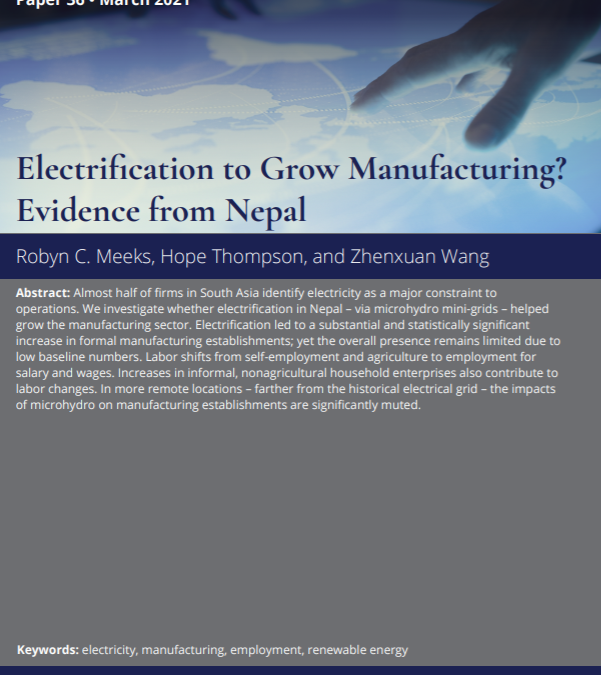
by Joshua Wilson | Mar 22, 2021 | Electricity, Hydro, Impact Evaluation, Mini-grids, News, Off-grid, Powering Productivity and Healthy Communities, Productive Use, Quantitative, Robyn Meeks, South Asia
New Working Paper: Electrification to Grow Manufacturing? Evidence from Nepal In the inaugural working paper of our new series, Robyn Meeks and co-authors explore the impacts that access to electricity through microhydro in Nepal has on labor and...

by Joshua Wilson | Mar 1, 2021 | News, Student Events, Student Opportunities
Watch: Energy in Emerging Markets Career Talks Curious about careers related to energy access and energy transitions in low- and middle-income countries? Check out this career talks session, which focuses on opportunities in governmental agencies and development...
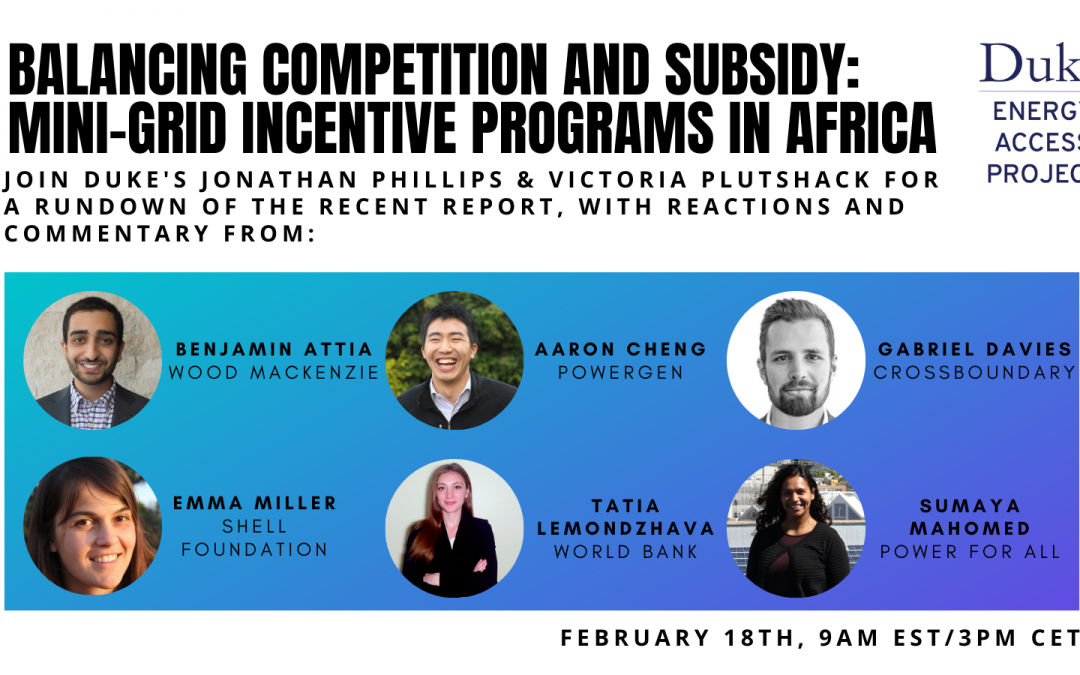
by Joshua Wilson | Feb 22, 2021 | Africa, Case Study, Hybrid, Jonathan Phillips, Mini-grids, Modernizing Energy Access Finance, News, Policy Design, Solar, Victoria Plutshack
Listen now! Balancing Competition & Subsidy: Mini-Grid Incentives Programs in Africa Webinar What can we learn from countries trying to scale mini-grid deployment? In this webinar, hear early lessons from Africa in the latest report from the Energy Access Project...

by Joshua Wilson | Feb 16, 2021 | Africa, Case Study, East Asia & Pacific, Electricity, Grid, Historical Analysis, Integrated Utility Planning, Jonathan Phillips, Latin America & Caribbean, Mini-grids, Modernizing Energy Access Finance, Off-grid, Policy Design, Productive Use, Projects, Seth Yeazel, South Asia, Victoria Plutshack
Lessons for Modernizing Energy Access Finance A modern energy system requires modern energy finance. This on-going series explores the ways in which we can learn from how energy access has been financed in the past to build a better, more equitable future. Part One:...

by Joshua Wilson | Feb 10, 2021 | Jonathan Phillips, News

by Joshua Wilson | Jan 2, 2021 | Student Opportunities
Internship Opportunity: Climate and Energy at Oxfam America New Student Opportunity! Oxfam is seeking an intern to provide support for a dedicated project assessing the World Bank’s reporting of its climate...
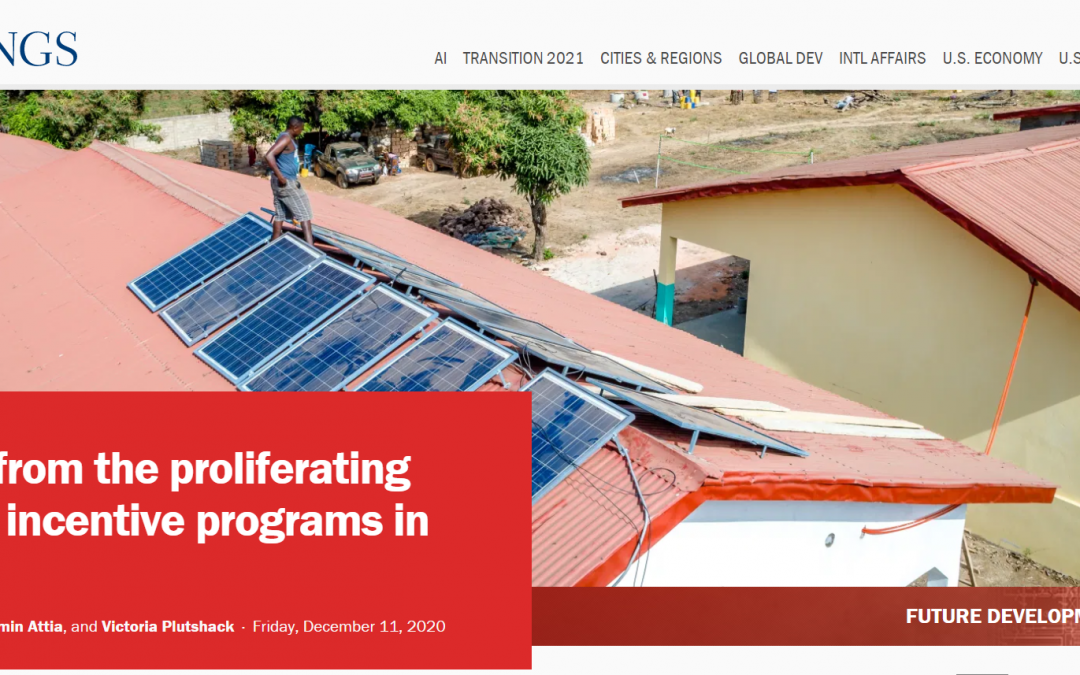
by Joshua Wilson | Dec 17, 2020 | Blog Post, Electricity, Jonathan Phillips, Mini-grids, Modernizing Energy Access Finance, News, Off-grid, Policy Design, Qualitative, Quantitative, Victoria Plutshack
New Blog! Lessons from the proliferating mini-grid incentive programs in Africa As governments put in place incentives to scale up mini-grid deployment, our team has reviewed 20 mini-grid programs in sub-Saharan Africa, in order to pull out some initial...

by Joshua Wilson | Dec 15, 2020 | Africa, Electricity, Grid, Integrated Utility Planning, Jonathan Phillips, Modernizing Energy Access Finance, News, Off-grid, Report
New Report! Business model innovations for utility and mini-grid integration: Insights from the Utilities 2.0 initiative in Uganda As a wave of decentralised renewable energy (DRE) technologies and business models are changing the energy service delivery landscape,...
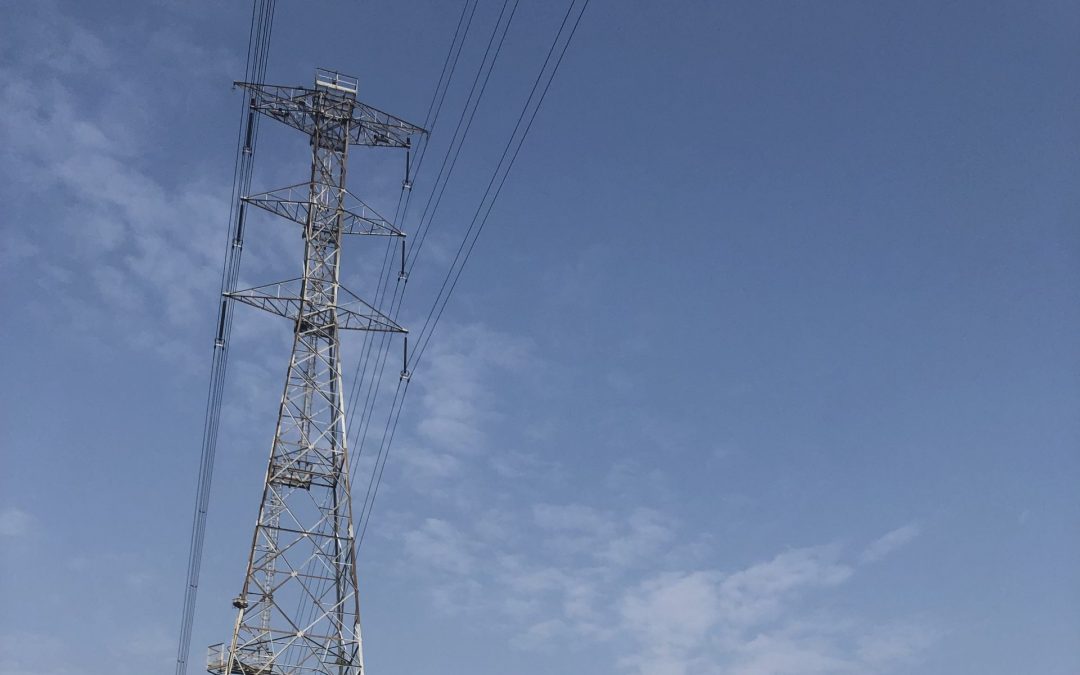
by Joshua Wilson | Dec 14, 2020 | Africa, Appliances, Electricity, Grid, Integrated Utility Planning, Jonathan Phillips, Mini-grids, Modernizing Energy Access Finance, Off-grid, Policy Design, Projects, Rajah Saparapa
Utilities 2.0 Commercial Approaches for Integrating Utilities and Off-grid Models The power sector debate in many low- and middle- income countries has focused on grid expansion versus off-grid options. However, integration of on- and off-grid approaches to...
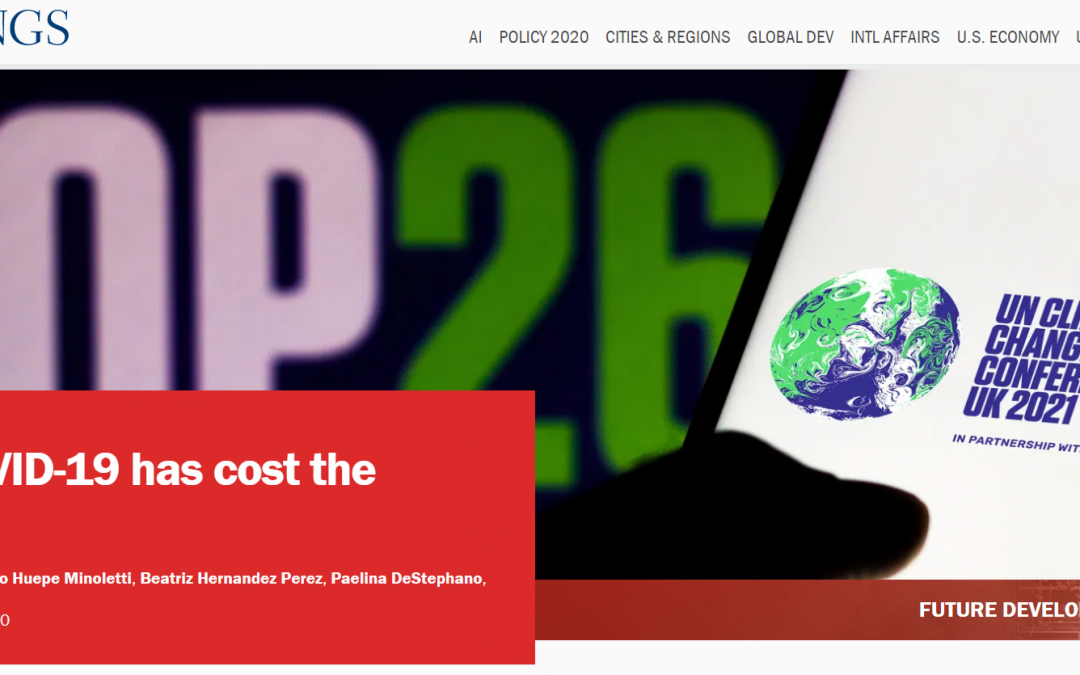
by Joshua Wilson | Dec 9, 2020 | Air Quality, Blog Post, Building Equitable and Sustainable Energy Transitions, Case Study, Coal, COVID-19, Electricity, Latin America & Caribbean, News, Paelina DeStephano, Policy Design, Political Economy, Qualitative, Victoria Plutshack
What COVID-19 has cost the climate Climate talks like the annual Conference of the Parties (COP) have led to many climate successes; informal conversations between international stakeholders at COP can become leverage for policy change at home, as seen in the case of...

by Joshua Wilson | Dec 7, 2020 | Deep Learning, Electricity, Grid, Integrated Utility Planning, Off-grid, Other, Policy Design, Quantitative, Stories, Student Opportunities
Watch: A Wider Lens on Energy – Adapting Deep Learning Techniques to Inform Energy Access Decisions In this webinar, an interdisciplinary team of Duke University students and faculty describe their Bass Connections project to use satellite imagery and...
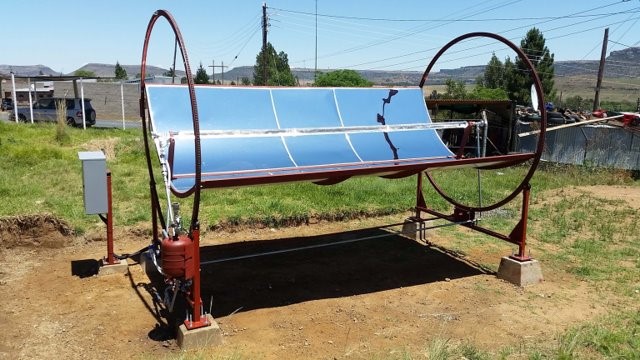
by Joshua Wilson | Oct 26, 2020 | Stories, Student Blog, Student Opportunities, Student Publications
Summer 2020 Energy Internship Program This summer, the Energy Access Project funded nine students to look at issues of energy accessibility, finance, and technology across the globe On August 28th, students who completed summer internships through the Energy...
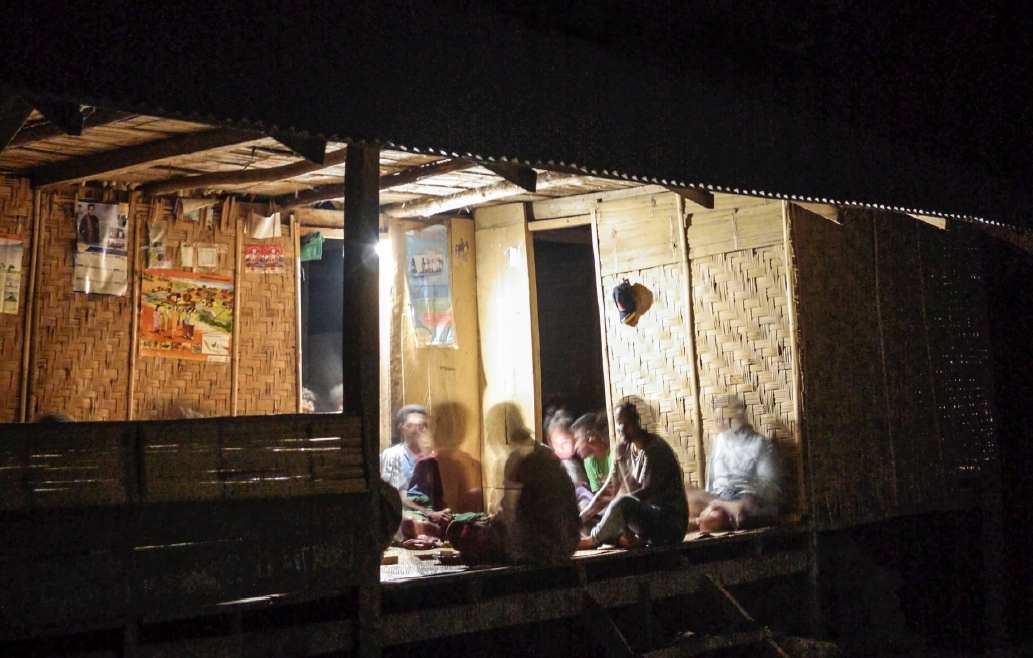
by Joshua Wilson | Oct 26, 2020 | Africa, Case Study, Cookstoves, East Asia & Pacific, Grid, Hydro, Latin America & Caribbean, Off-grid, Other, Qualitative, Solar, South Asia, Stories, Student Blog, Student Publications, Wind
GLEAN Annual Case Studies The Energy Access Project sponsors the Global Energy Access Network, an interdisciplinary network of graduate and undergraduate students at Duke. Together, we aim to foster a research and policy dialogue on campus around energy access through...
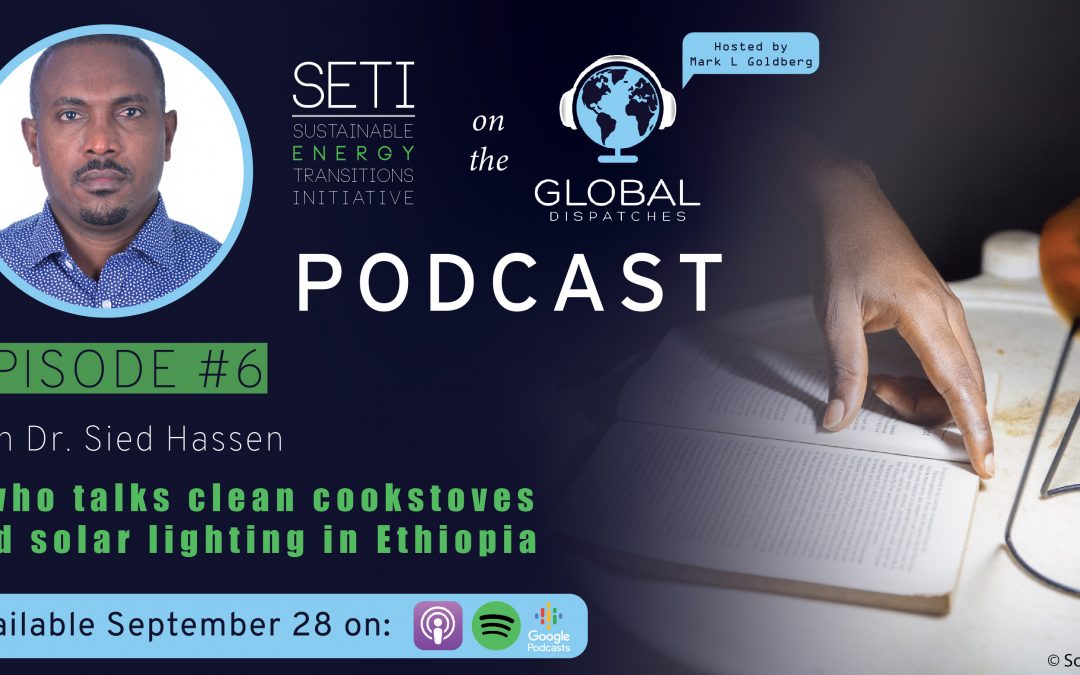
by Joshua Wilson | Oct 8, 2020 | Podcast, SETI
< Back to SETI Media How to Increase the Use of Clean Cookstoves and Solar Lighting in Rural Ethiopia and Beyond Sied Hassen is a Senior Research Fellow at the Policy Studies Insitute in Addis Ababa, Ethiopia. Sied designed an inventive field experiment to uncover...
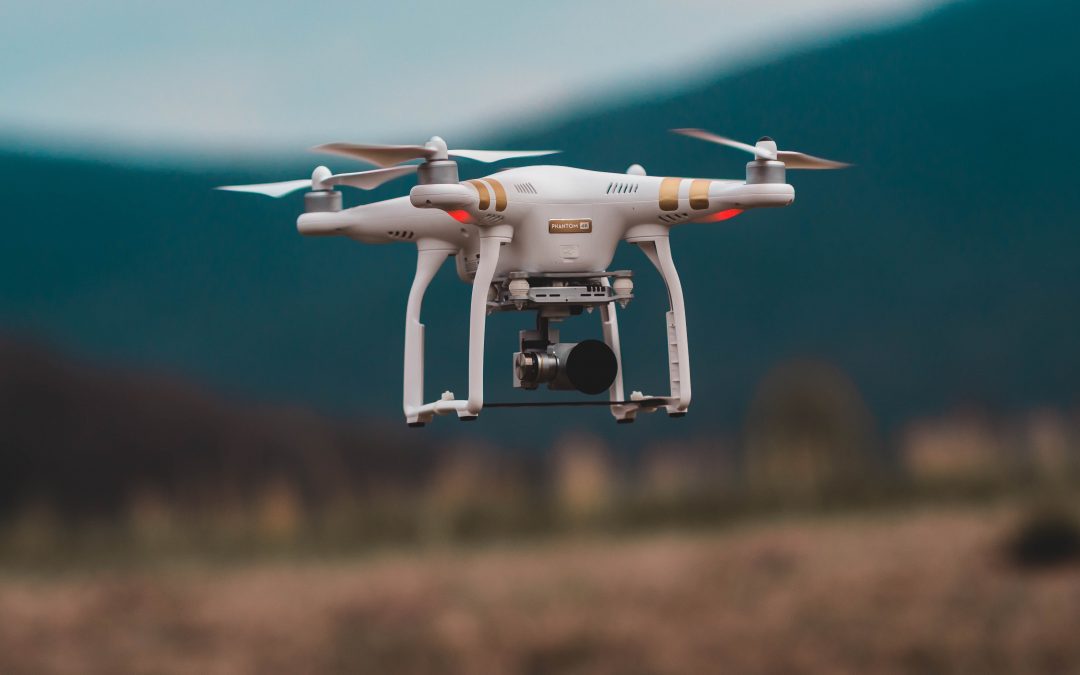
by Joshua Wilson | Aug 26, 2020 | Deep Learning, Electricity, Harnessing Data and Modern Technology, Integrated Utility Planning, Kyle Bradbury, Mini-grids, Off-grid, Other, Projects, Solar, Solar Home Systems, T. Robert Fetter
Mapping Solar Arrays With Aerial Imagery Policymakers need accurate data in order to make strategic investments decisions for grids, microgrids, and off-grid solar home systems, but those data are often missing. Two critical inputs for planning—who has access to...
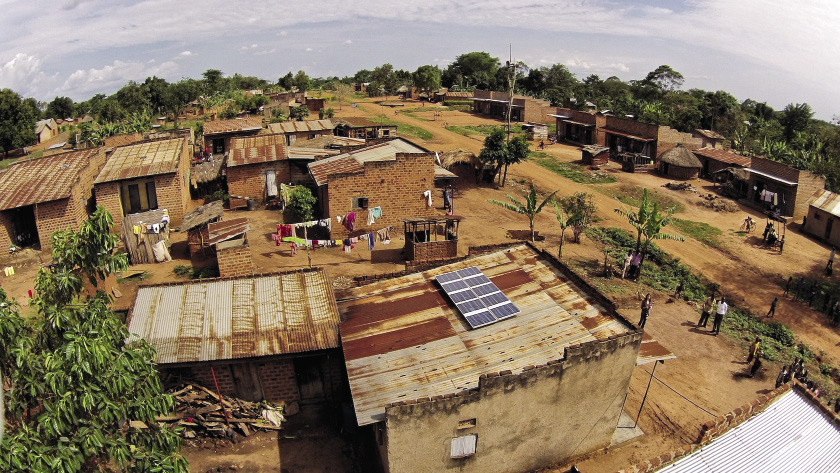
by Joshua Wilson | Aug 25, 2020 | Africa, Harnessing Data and Modern Technology, News, Solar, T. Robert Fetter
[rev_slider alias="intro-slider"] Powering Health Care: Measuring Impact of Clinic Electrification Subhrendu Pattanayak, faculty director of the Energy Access Project, will participate in Powering Health Care’s “Designing Research and M&E Strategies to...
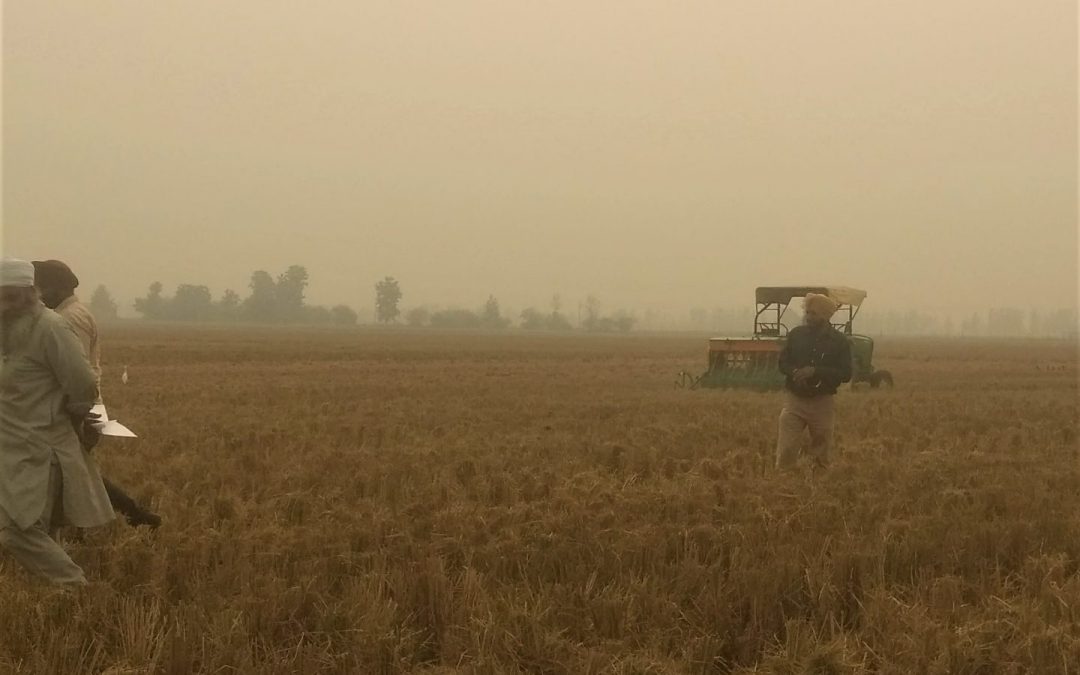
by Joshua Wilson | Aug 24, 2020 | Agriculture, Air Quality, Econometric Regression Analysis, Micro-level Surveys, P.P. Krishnapriya, Pollution, Powering Productivity and Healthy Communities, Projects, Quantitative, South Asia, Subhrendu Pattanayak
Adoption of conservation agriculture in India Every October to November, the ambient air in the Indo-Gangetic plain becomes a noxious concoction of toxic emissions that are partly attributable to the seasonal agricultural residue burning. This burning contributes to a...

by Joshua Wilson | Aug 21, 2020 | Appliances, Building Equitable and Sustainable Energy Transitions, Electricity, Gender, Grid, Harnessing Data and Modern Technology, Historical Analysis, Other, Qualitative, Quantitative, Student Blog, Student Opportunities, Student Publications, T. Robert Fetter, Victoria Plutshack
What the U.S. rural electrification story can teach us today Come join the Electric Circus! In 1935, only 10% of farms in the U.S. were electrified. This was seen as a huge problem – the productivity and quality of life that electricity could bring was bypassing the...
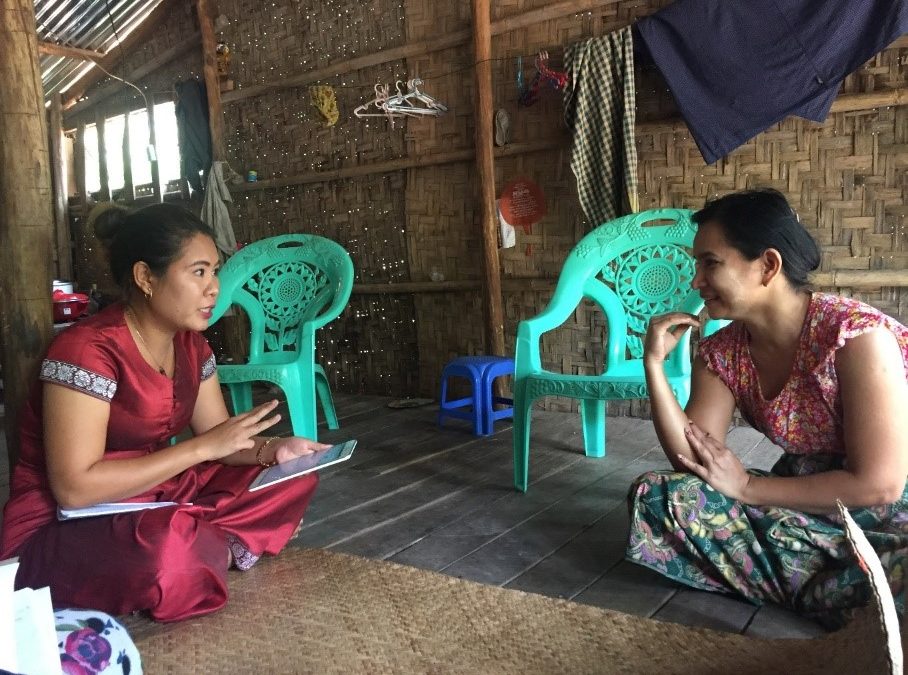
by Joshua Wilson | Aug 20, 2020 | Appliances, Building Equitable and Sustainable Energy Transitions, Cookstoves, East Asia & Pacific, Electricity, Gender, Impact Evaluation, Ipsita Das, Micro-level Surveys, Mini-grids, Off-grid, Projects, Quantitative, Solar, Subhrendu Pattanayak
Gender and off-grid energy access in Myanmar Myanmar has the lowest electrification rate in Asia (> 60% rural population lacks electricity), and the Government of Myanmar aims to electrify all households by 2030 through grid extension and off-grid infrastructure....
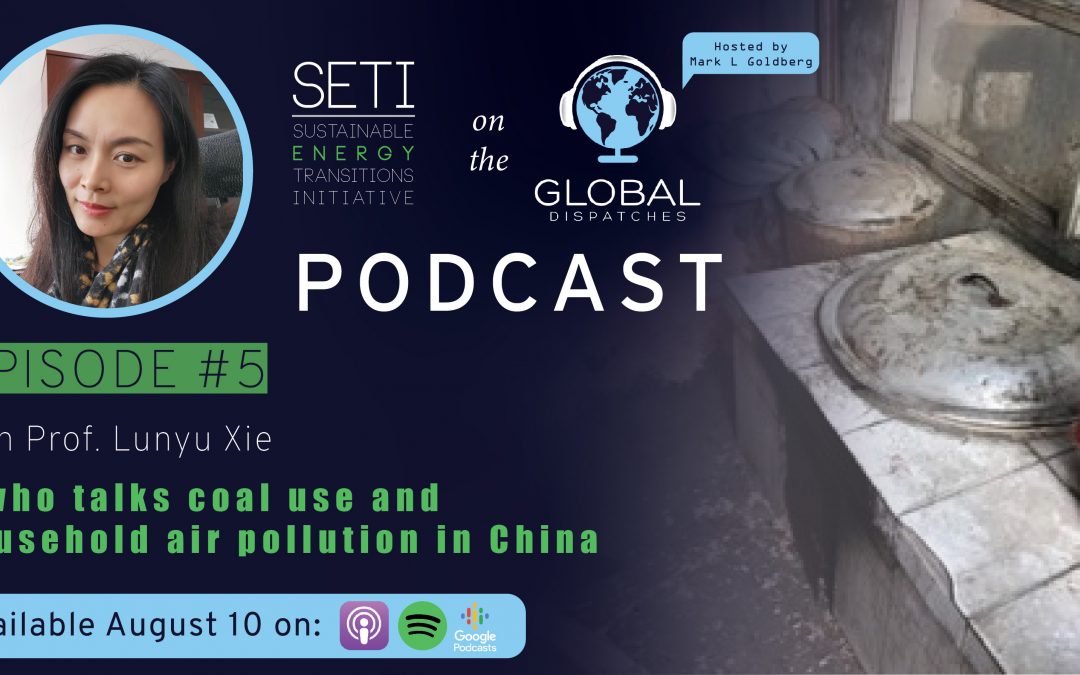
by Joshua Wilson | Aug 10, 2020 | Podcast, SETI
< Back to SETI Media China Has A Plan to Reduce Household Air Pollution. But Who Benefits? Lunyu Xie is Associate Professor at the School of Applied Economics , Renmin University of China. She conducted a unique cost-benefit study of this program that analyzed the...

by Joshua Wilson | Jul 13, 2020 | Podcast, SETI
< Back to SETI Media Why Does Chile Have Such Bad Air Pollution? Carlos Chavez is a professor of economics at the School of Business and Economics at Universidad de Talca in Central Chile. His research focuses on the use of wood-burning heating stoves in Chile and...

by Joshua Wilson | Jul 13, 2020 | Abi Vanover, Air Quality, Building Equitable and Sustainable Energy Transitions, Cookstoves, Cost Benefit Analysis, Gender, Individual Health, Ipsita Das, Marc Jeuland, News, Other, Policy Design, Powering Productivity and Healthy Communities, Quantitative
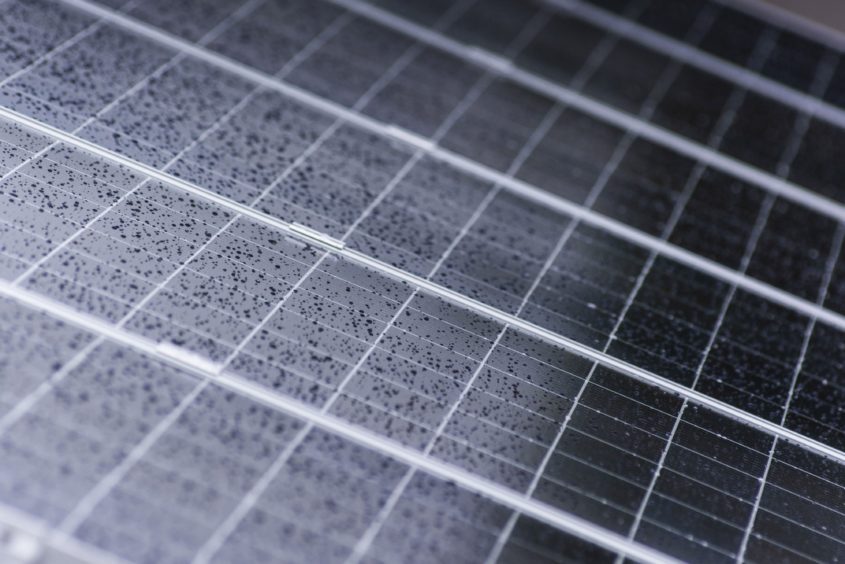
by Joshua Wilson | Jul 13, 2020 | Africa, COVID-19, Electricity, Grid, Health Facilities, News, Off-grid, Powering Productivity and Healthy Communities, T. Robert Fetter

by Joshua Wilson | Jun 5, 2020 | Africa, COVID-19, Electricity, Grid, Health Facilities, News, Off-grid, T. Robert Fetter
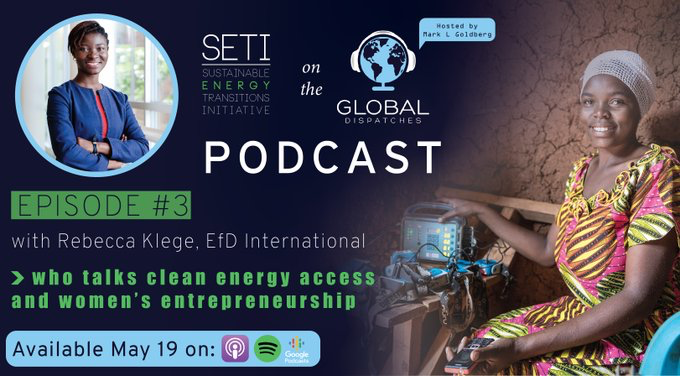
by Joshua Wilson | May 19, 2020 | Podcast, SETI
< Back to SETI Media How Female Entrepreneurs Can Light Up Rural Rwanda Rebecca Klege is an Economist whose research focuses on the intersection of clean energy access and female entrepreneurship. Rather than asking how energy access empowers women, she examines...

by Joshua Wilson | May 18, 2020 | Building Equitable and Sustainable Energy Transitions, Gender, Ipsita Das, Marc Jeuland, News, Other, P.P. Krishnapriya, Rajah Saparapa, Subhrendu Pattanayak, Victoria Plutshack
Powering Empowerment Experts from over 10 time zones and 35 countries came together May 12-13th for our first ever virtual workshop – Energy Access through a Gender Lens! This event, co-sponsored with the Sustainable Energy Transitions Initiative and Women in...
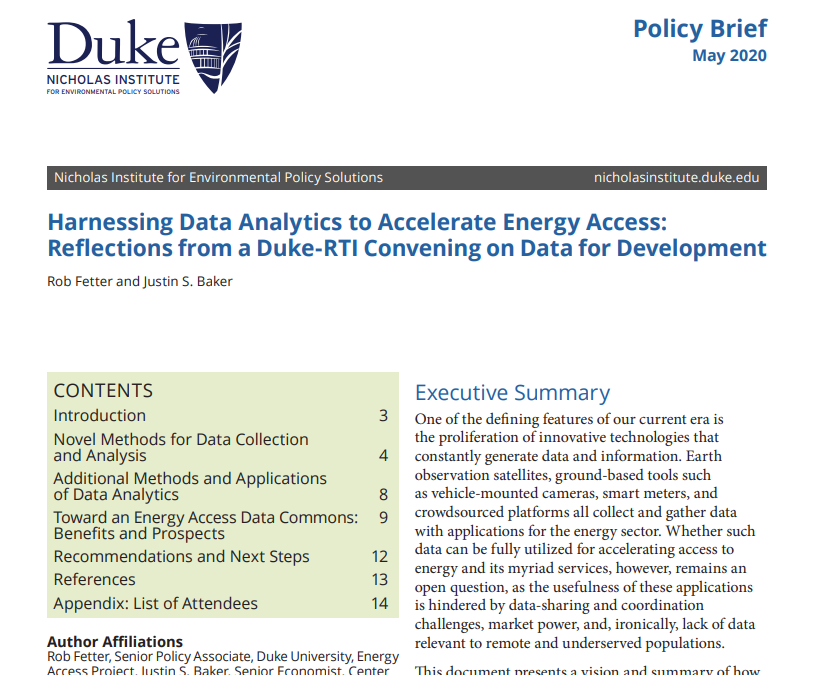
by Joshua Wilson | May 18, 2020 | Cost Benefit Analysis, Deep Learning, Econometric Regression Analysis, Impact Evaluation, Micro-level Surveys, News, Other, Quantitative, Systems Modeling, T. Robert Fetter

by Joshua Wilson | May 15, 2020 | Deep Learning, Harnessing Data and Modern Technology, News, Other, Solar, Solar Home Systems, T. Robert Fetter
Catalyst Grant Winners! Congratulations to the seven winners of the Nicholas Institute Catalyst Grants! We are delighted that this year's winners includes EAP's own Rob Fetter, who will be leading 'Mapping Solar Photovoltaic Arrays Using Unpiloted Aerial...
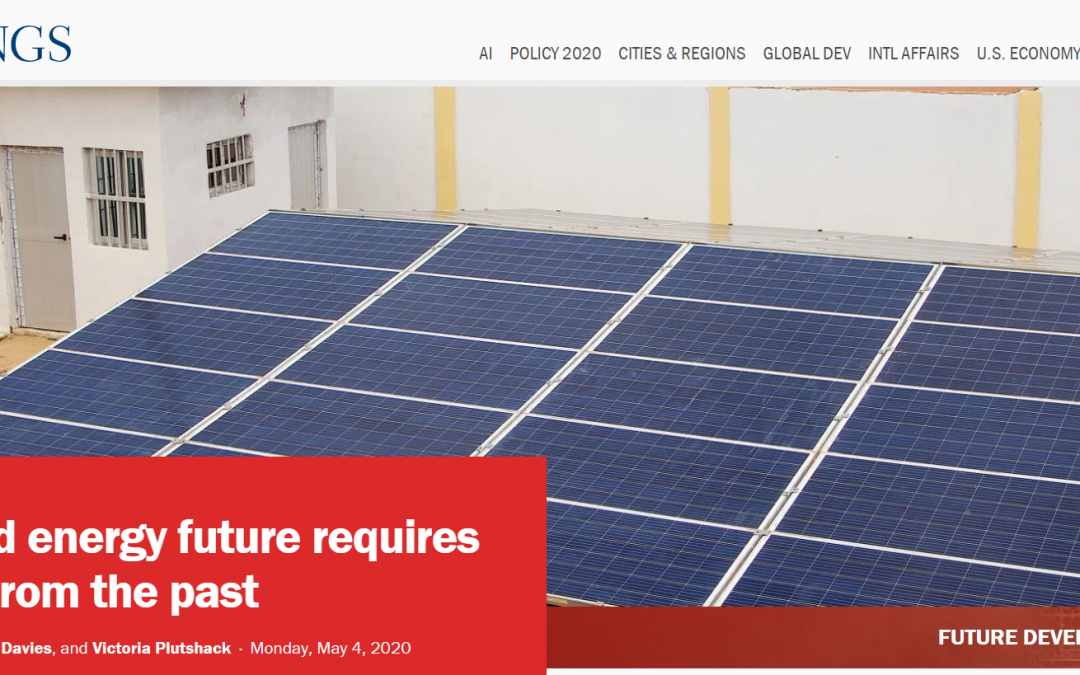
by Joshua Wilson | May 6, 2020 | Africa, Case Study, Development Institutions, East Asia & Pacific, Grid, Historical Analysis, Jonathan Phillips, Latin America & Caribbean, News, Off-grid, Other, Policy Design, Qualitative, Quantitative, South Asia, Victoria Plutshack
An off-grid energy future requires learning from the past The more things change, the more they stay the same. EAP's latest in the Brookings Future Development blog explores the electrification experiences of seven countries, their program costs and the subsidies...
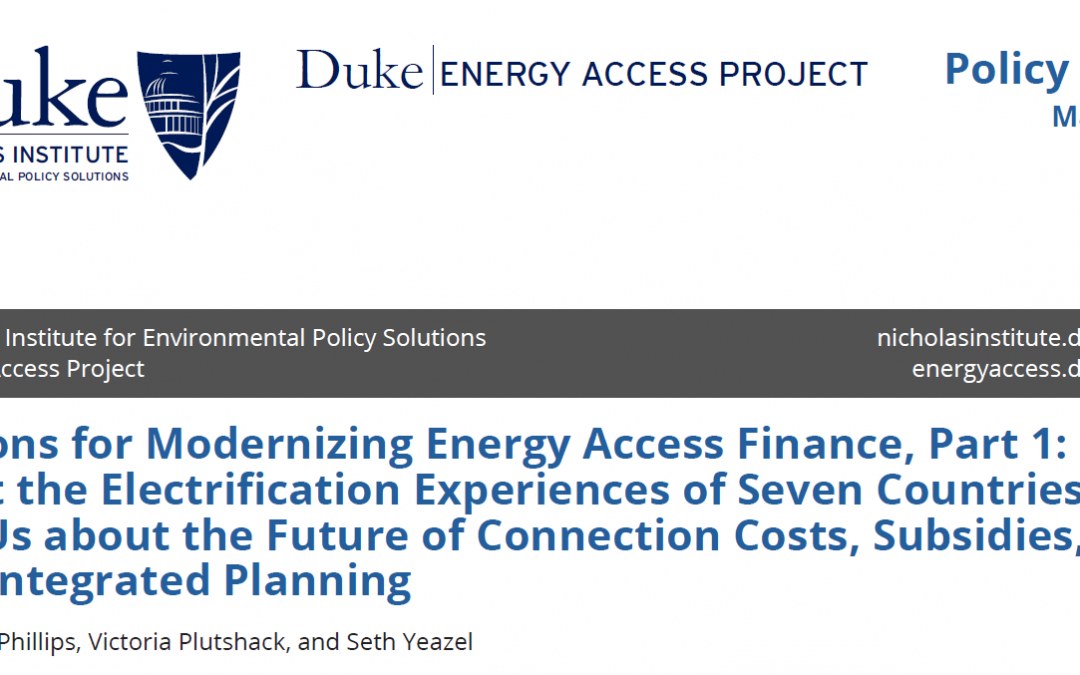
by Joshua Wilson | May 1, 2020 | Africa, Case Study, Development Institutions, East Asia & Pacific, Grid, Historical Analysis, Jonathan Phillips, Latin America & Caribbean, News, Off-grid, Other, Policy Design, Qualitative, Quantitative, South Asia, Victoria Plutshack
New Publication: Lessons for Modernizing Energy Access Finance, Part 1 Countries facing electricity access challenges today have more options and potential electrification pathways than ever before, but the initial cost of connecting new rural customers remains an...
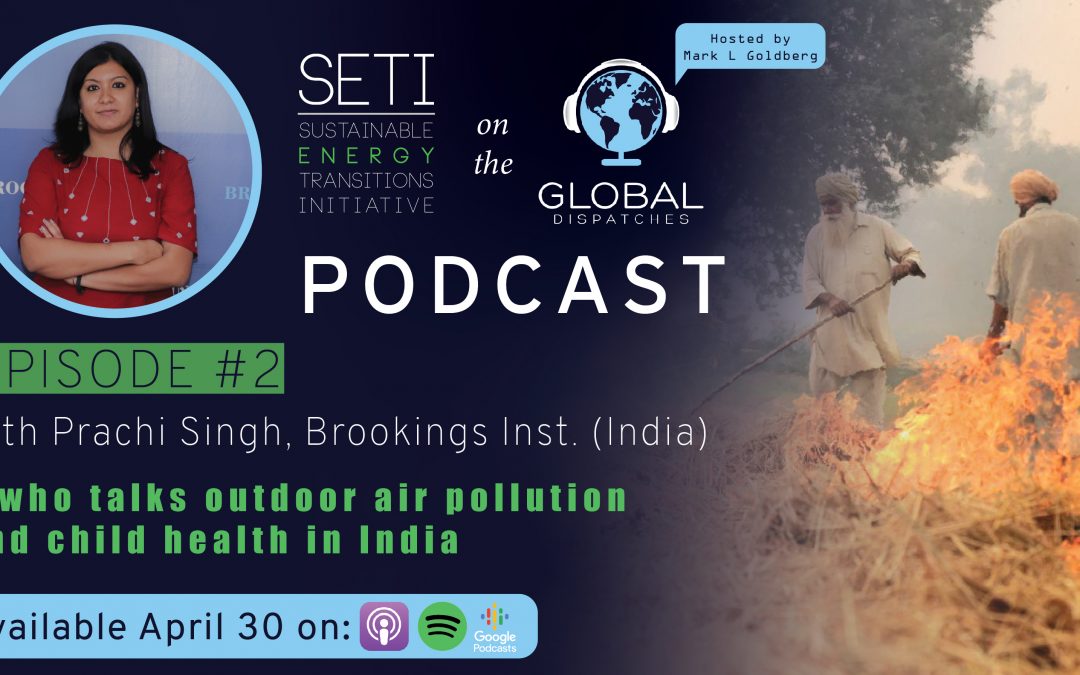
by Joshua Wilson | Apr 30, 2020 | Podcast
< Back to SETI Media New Research Finds a Link Between Fires, Children’s Health and Gross Domestic Product Prachi Singh is an associate fellow at the Brookings Institution, India Center and a PhD candidate at Indian Statistical Institute, Delhi. Her research...
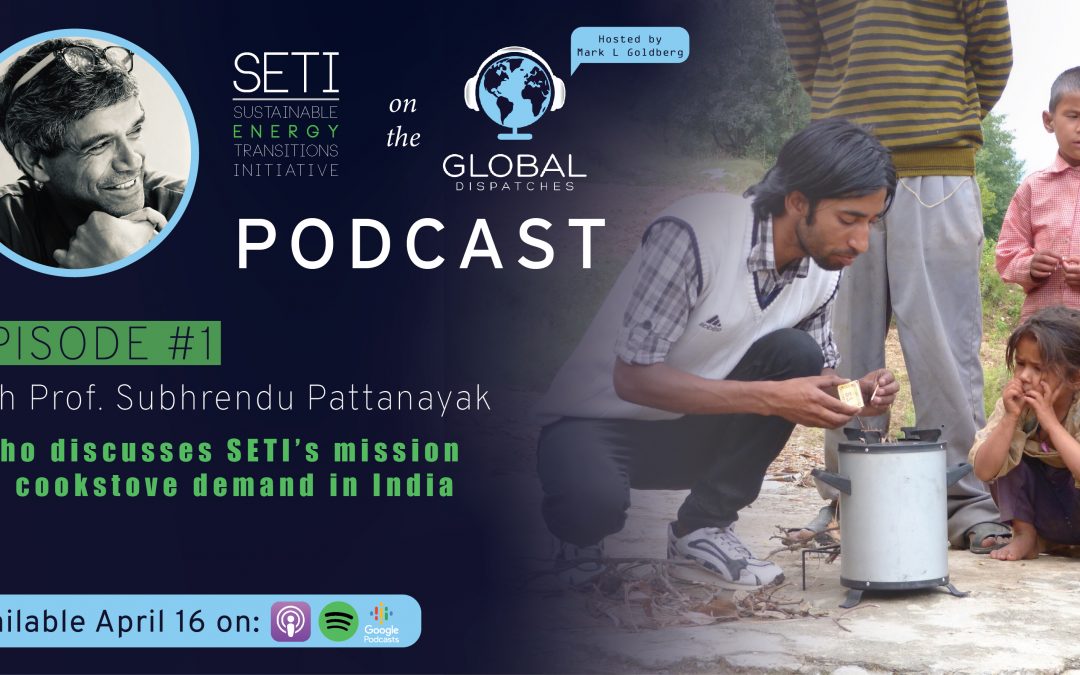
by Joshua Wilson | Apr 16, 2020 | Podcast
< Back to SETI Media Why Don’t More People Use Clean Cookstoves? For years, the global development community has struggled over the problem of dirty burning cookstoves. These are typically rudimentary stoves that burn wood or other biomass — and in the process emit...
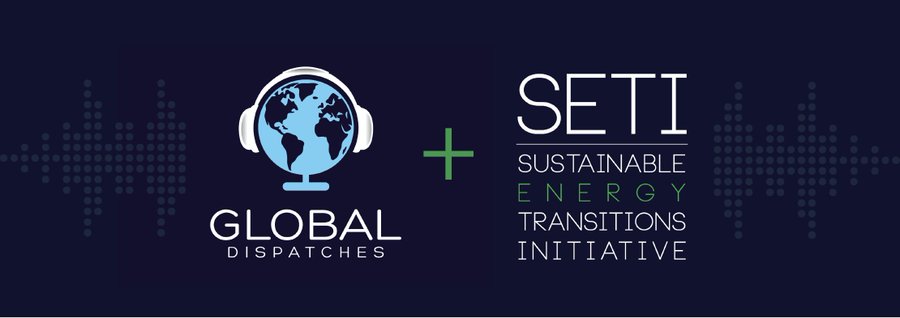
by Joshua Wilson | Apr 16, 2020 | News, Other, Subhrendu Pattanayak
Sustainable Energy Transitions Initiative: Podcast SETI is pleased to announce a 6-episode podcast partnership with Global Dispatches, the United Nations Dispatch’s official podcast, hosted by Mark Goldberg. Starting next month, SETI will be releasing one...
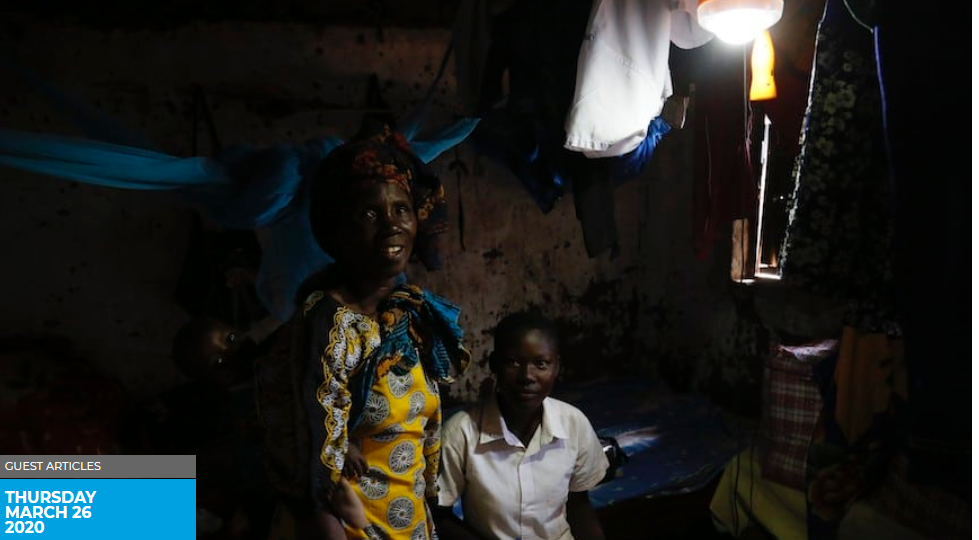
by Joshua Wilson | Mar 26, 2020 | Deep Learning, Emily Pakhtigian, Grid, Jonathan Phillips, Latin America & Caribbean, Marc Jeuland, News, Off-grid, Policy Design, Quantitative
New Data and Technologies are Transforming Energy Access Technologies like geospatial imagery, machine learning and affordable batteries are generating ever more innovative ways to target customers with off-grid energy solutions. But according to analysts at the Duke...
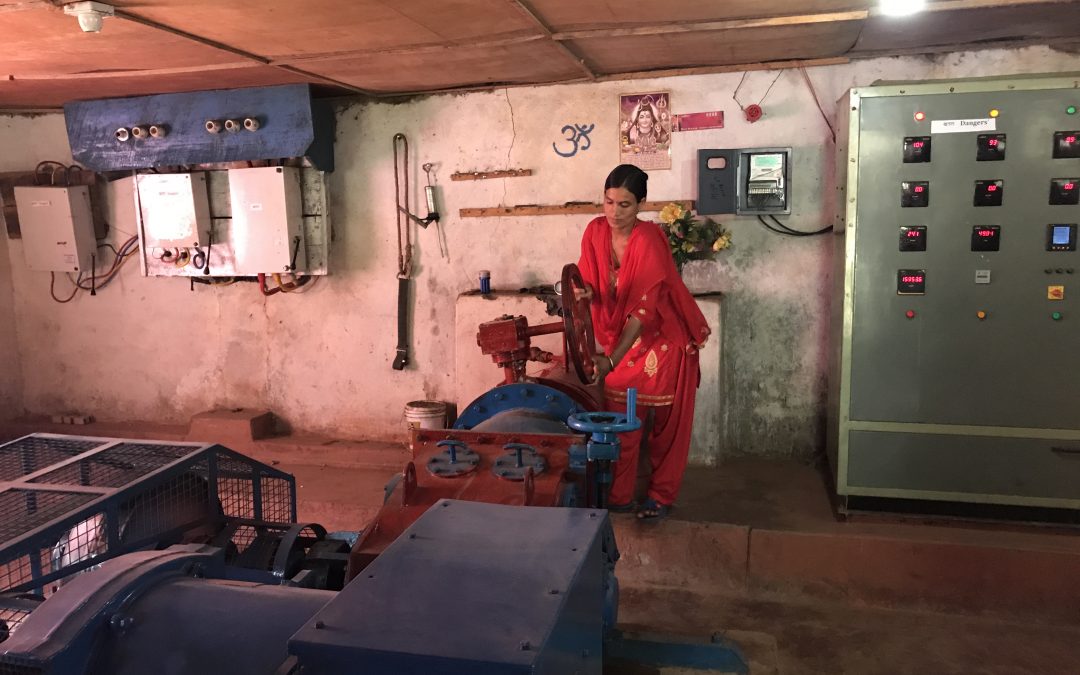
by Joshua Wilson | Mar 18, 2020 | Natalie Valent, Projects, Rajah Saparapa, Victoria Plutshack
Virtual Workshop: Energy Access through a Gender Lens Overview The impacts of energy poverty and the solutions to addressing it must be understood through the lens of gender. Women in low- and middle-income countries (LMICs) often bear the costs of fuel collection,...
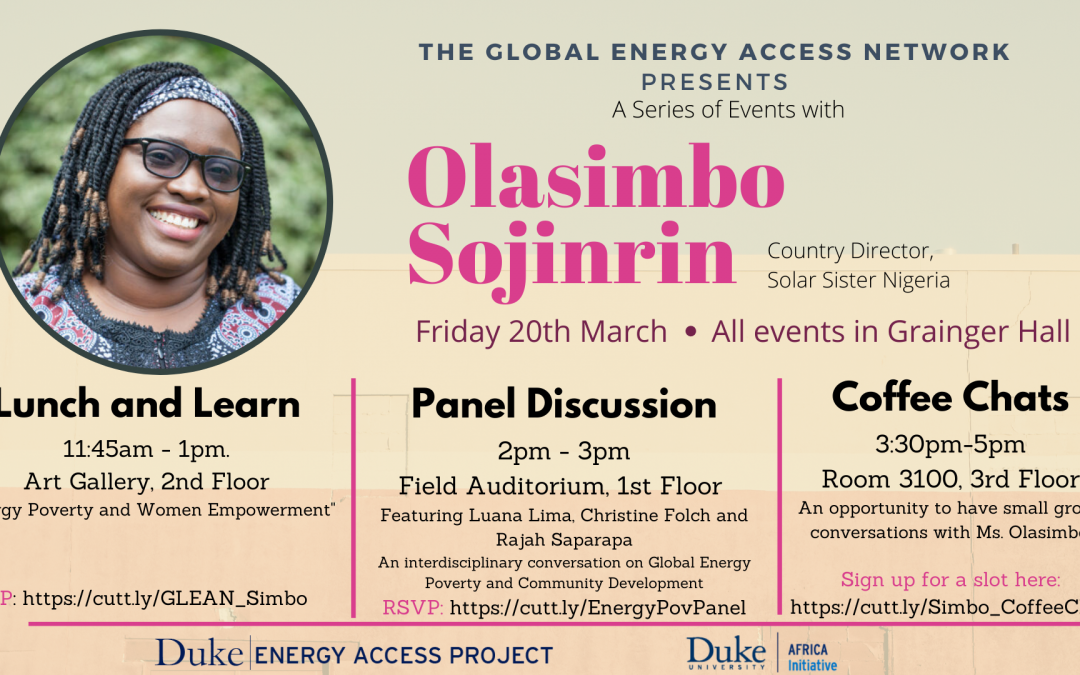
by Joshua Wilson | Mar 10, 2020 | Africa, Building Equitable and Sustainable Energy Transitions, Gender, News, Solar Home Systems
A series of Events with Olasimbo Sojinrin The Global Energy Access Network (GLEAN) with the Energy Access Project and Duke Africa Initiative will be hosting a series of events with Ms. Olasimbo Sojinrin. Olasimbo is the country director of Solar Sister in Nigeria....
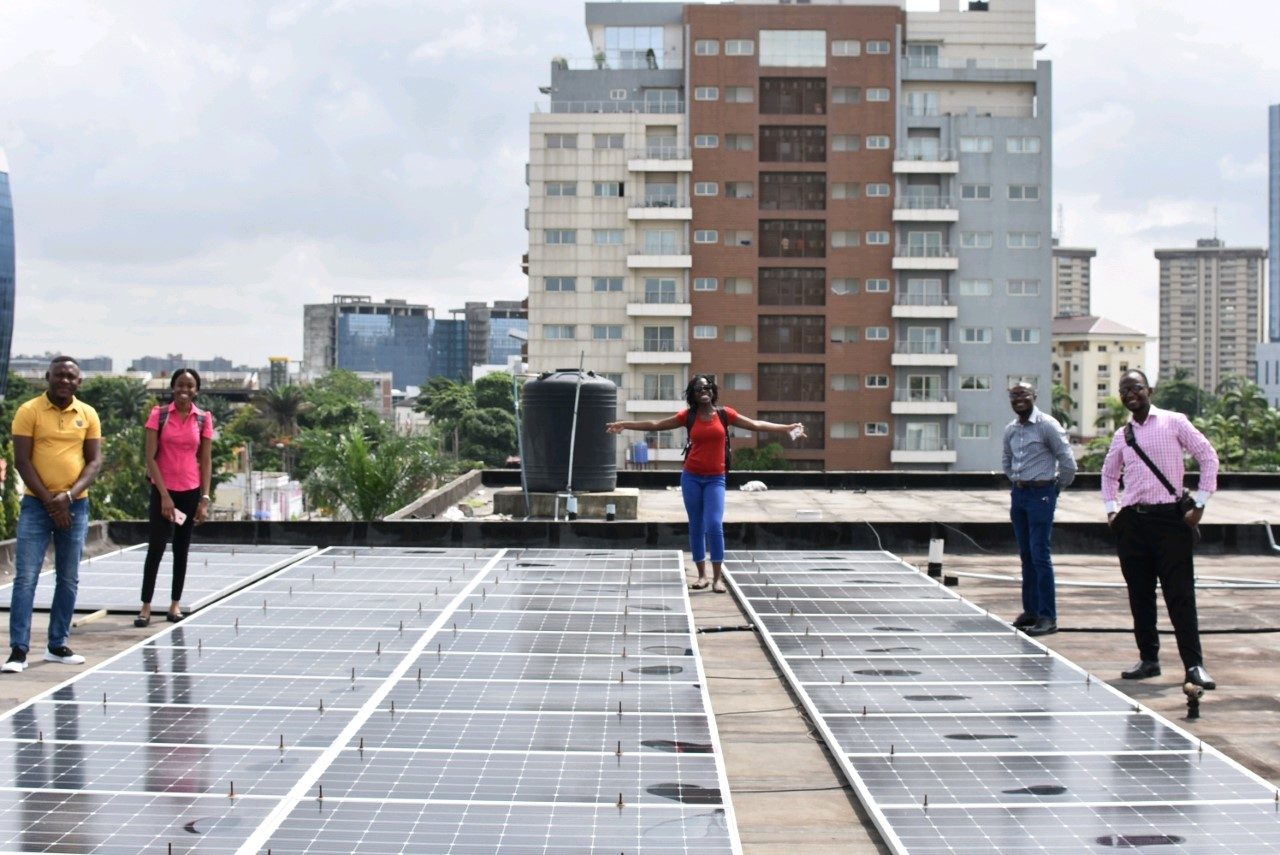
by Joshua Wilson | Feb 27, 2020 | Stories
Ayooluwa Balogun: Energy Access in the City I came into my summer internship at Aspire Power Solutions with a birds-eye view of the energy access problem. I had just finished a Bass connections class focused on the energy access landscape in Zambia. The Bass...

by Joshua Wilson | Feb 19, 2020 | News, Other
High-scoring 100&Change applications featured in Bold Solutions Network The John D. and Catherine T. MacArthur Foundation today unveiled that “25×25: End Energy Poverty Faster,” submitted by the 25×25 Electricity Access Acceleration Collaborative, was...
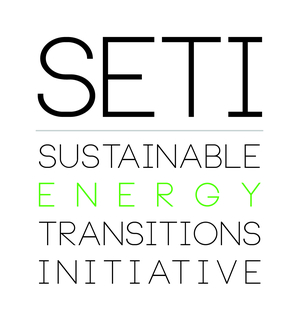
by Joshua Wilson | Feb 18, 2020 | Latin America & Caribbean, News
Call for Papers Annual Meeting of the Sustainable Energy Transitions Initiative (SETI)June 29 – July 1, 2020Mercator Institute on Global Commons and Climate Change (MCC), Berlin, Germany Deadline for submissions: March 13, 2020 SETI is very pleased to announce...

by Joshua Wilson | Jan 10, 2020 | News
Energy in Emerging Markets Career Trek Washington, DC The Duke Energy Access Project (EAP) is organizing a career trek for a limited number of students to Washington DC, from January 23rd to 24th 2020 focused on energy in emerging markets. Students will spend two days...
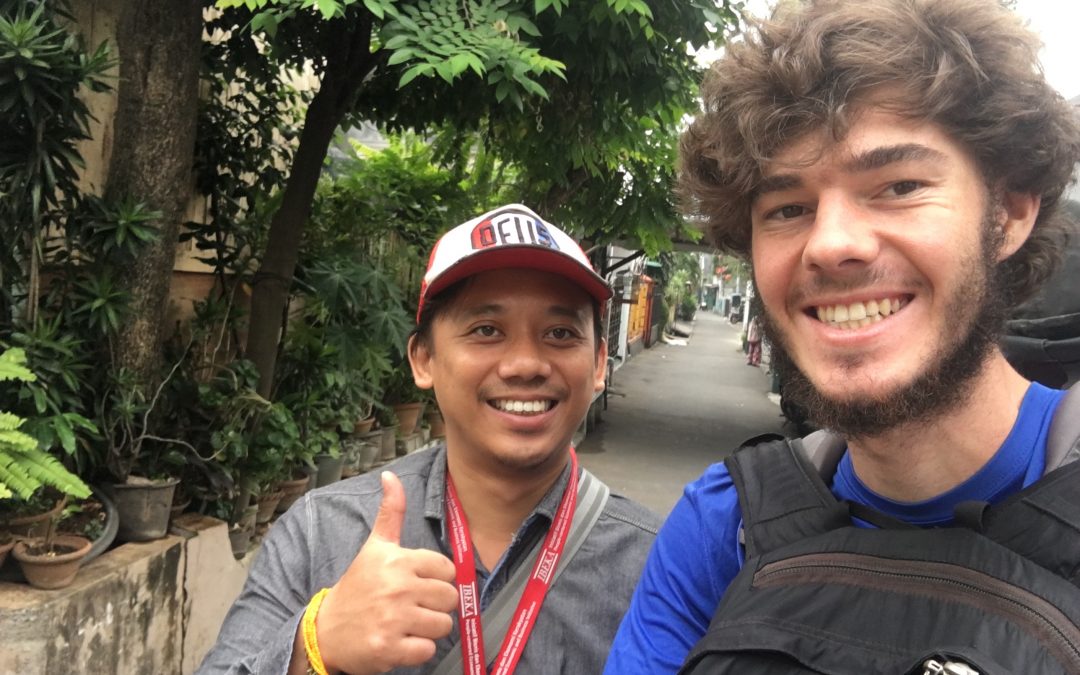
by Joshua Wilson | Jan 10, 2020 | Stories
Energy Access Through Wind Turbines: My Experience With IBEKA Over this past summer I worked for the non-profit IBEKA in Indonesia. IBEKA’s goal is to empower rural villages by providing them with electricity, most often in the form of a micro-hydropower plant (MHP),...

by Joshua Wilson | Jan 10, 2020 | Appliances, Electricity, Gender, Grid, Historical Analysis, News, Other, Qualitative, T. Robert Fetter, Victoria Plutshack
Consider applying to join the Energy Access Project’s Story+ project, Joining the electric circus: rural electrification and gender in the papers of Louisan...
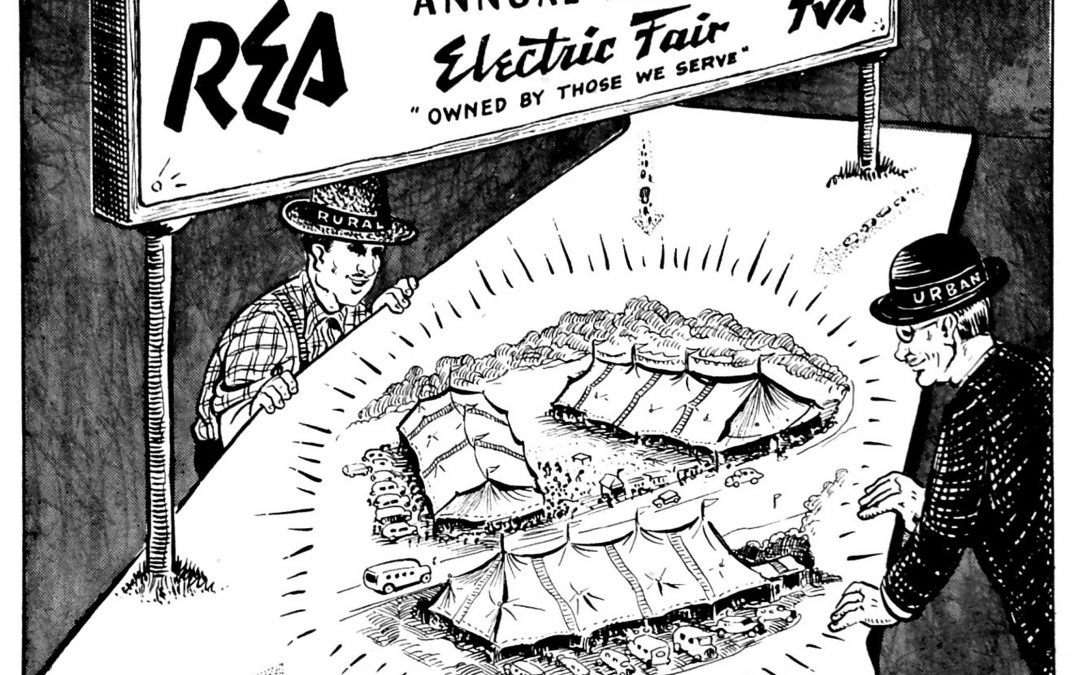
by Joshua Wilson | Jan 10, 2020 | Appliances, Electricity, Grid, Impact Evaluation, News, Other, Productive Use, Quantitative, T. Robert Fetter, Victoria Plutshack
Consider applying to join the Energy Access Project’s Data+ project, Taking electrification on the road: Exploring the impact of the Electric Farm Equipment...

by Joshua Wilson | Jan 10, 2020 | Data+, Student Opportunities, Victoria Plutshack
Data+ Call for Applications Looking to take on new challenges this summer? Want to learn more about machine learning and data visualization? Curious to understand how the U.S. expanded electricity access in rural areas? Consider applying to join the Energy Access...


















































